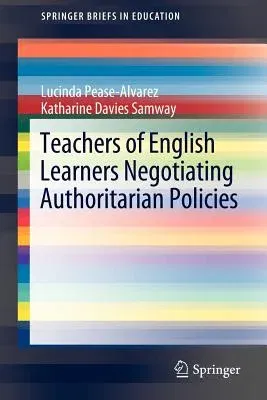Lucinda Pease-Alvarez
(Author)Teachers of English Learners Negotiating Authoritarian Policies (2012)Paperback - 2012, 9 February 2012

Qty
1
Turbo
Ships in 2 - 3 days
In Stock
Free Delivery
Cash on Delivery
15 Days
Free Returns
Secure Checkout
Part of Series
Springerbriefs in Education
Print Length
71 pages
Language
English
Publisher
Springer
Date Published
9 Feb 2012
ISBN-10
9400739451
ISBN-13
9789400739451
Description
Product Details
Book Edition:
2012
Book Format:
Paperback
Country of Origin:
NL
Date Published:
9 February 2012
Dimensions:
22.61 x
14.99 x
0.76 cm
Genre:
Education
ISBN-10:
9400739451
ISBN-13:
9789400739451
Language:
English
Location:
Dordrecht
Pages:
71
Publisher:
Series:
Weight:
136.08 gm

